
As an important rare and strategic mineral, the tungsten mineral plays a very important role in the development of national economy. At present, the wolframite group and scheelite group are the main tungsten minerals that are valuable for exploitation and utilization. Among them, the wolframite is featured with a low grade, high mining dilution rate, complex mineral composition and great difficulty in separation.
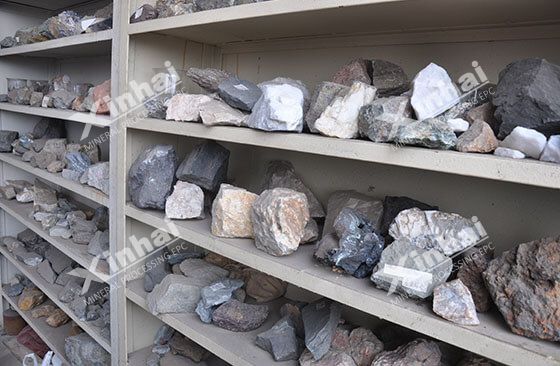
In the practice, the wolframite processing flow or wolframite-based ores processing flow mainly include five stages: roughing, grinding, gravity separation, concentration and fine sludge treatment.
Hand separation is a simple pre-enrichment method for wolframite, and it is also a necessary operation in wolframite processing flow. The selection of qualified wolframite from the raw ore is called direct hand separation, and the selection of waste rock from the raw wolframite is called positive hand separation. According to the different properties of wolframite, the wolframite concentrators can adopt the direct hand separation or positive hand separation, or the combination of direct hand separation and positive hand separation.
Because the tungsten is brittle and has a significant ratio, which is easy to cause overgrinding and overcrushing in the grinding process, and produce too much secondary slime. Therefore, the grinding stage is particularly important in the tungsten ore extraction process. The common wolframite grinding stage mostly adopts one-stage grinding, one-stage rod grinding + middling grinding, two-stage grinding.
At this stage, the wolframite grinding equipment mostly adopts the rod mill, which can avoid over-grinding phenomenon and ensure the uniform granularity of grinding products, thus to meet the granularity requirements of gravity separation.
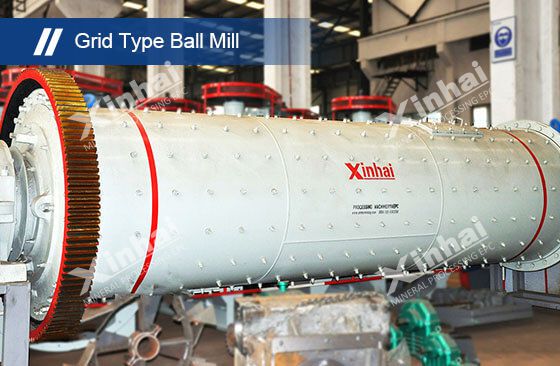
In principle, the raw ore goes through the first or second stage grinding, enters the three-stage jigging, four or five stage shaking table, and the fine mud is processed to get the coarse concentrate, and a large amount of tailings are discarded. The coarse and medium grain jigging tailings are reground in the rod mill, and the grinding products are returned to the double-layer vibrating screen to form a one-cycle closed circuit. The shaking table generally adopts two times of separation, the coarse and medium grain shaking table middling are back to the loop, the slime is treated separately.
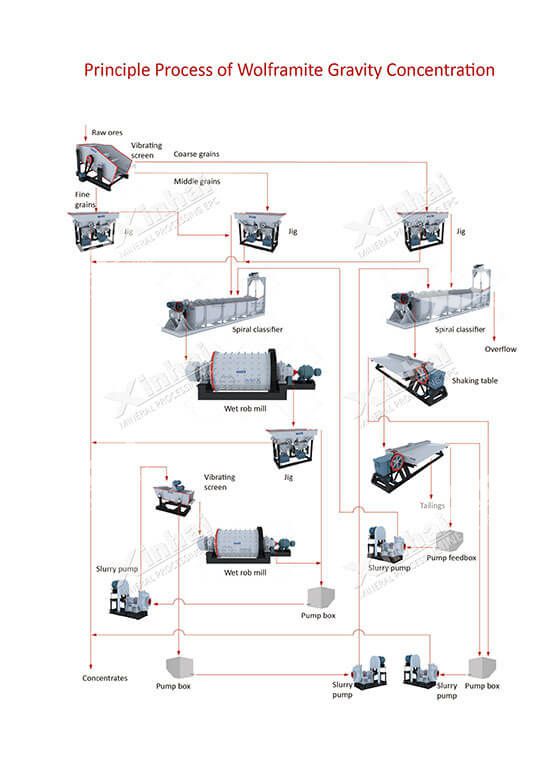
Wolframite jigging process
The jig is one of the important gravity separators in the stage of tungsten gravity separation. The three-level jigging is mostly used in the wolframite jigging process, that is, all qualified ores are screened into coarse, medium and fine grades then sent to the jigging operation. The coarse particle size is generally 8-10mm, and the medium particle size is 1.5-5mm. The recovery rate of coarse and medium grain jigging tailings can reach 65%-75% after the regrinding and re-separation. The fine grain jigging tailings are sent to the shaking table after the hydraulic classification, and the tailings are discarded by the shaking table. The concentrate obtained from the roughing jigging operation can be sent to the concentrating operation for treatment as the coarse concentrate in the gravity separation stage.
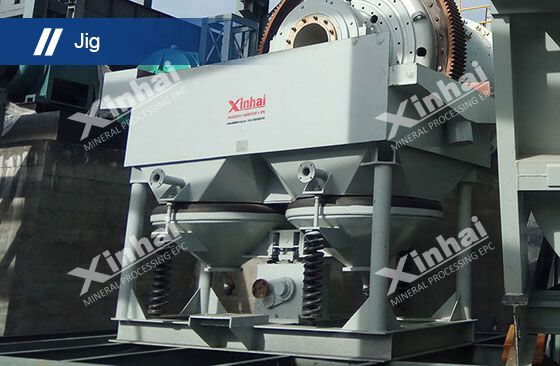
Wolframite shaking table process
The shaking table is widely used in the separation of medium and fine wolframite, which can be used as the concentrating equipment in the large-scale wolframite concentrators, and as the coarse and concentrating equipment in the small-scale wolframite concentrators. The suitable separation size of the shaking table is 0.037-2mm. In order to ensure the effect of wolframite gravity separation, the feed particle-size range of each gravity separation operation shall be narrow as soon as possible. Therefore, the high frequency vibrating screen or hydraulic classification box can be used as the pre-classification before the shaking table process.
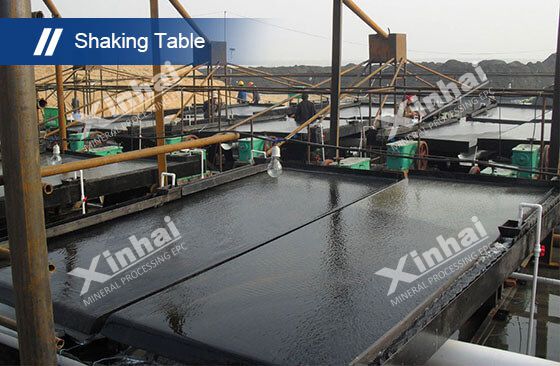
The wolframite shaking table process usually adopts two times of operation, the middling of coarse and medium grain return to the loop and the slime is treated separately.
After the gravity separation, the coarse concentrate often contains high value non-ferrous metals, such as tin, molybdenum, bismuth, copper, zinc, or the rare metals, such as tantalum and niobium. It is necessary to select the wolfram from the coarse concentrate.
Wolframite magnetic separation method
The concentration of coarse tungsten concentrate is generally intermittent operation, and the coarse concentrate needs to be dried before the concentration. The coarse grain wolframite magnetic separation adopts the single or multi-disc dry magnetic separator, which is featured with bottom feeding, strong selectivity, and the processing particle size of this type of magnetic separator is 0.074-3mm. And the purer tungsten concentrate can be obtained after the magnetic separation, but the tungsten content in the tailings is high, which needs multiple scavenging. In addition, the feeding of disc magnetic separator needs grading, the narrower the particle size, the better the magnetic separation effect.
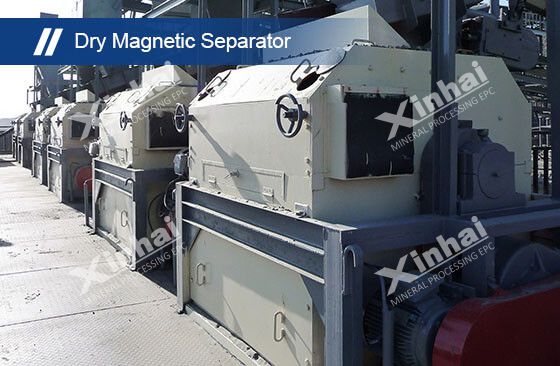
Wolframite table flotation method
The table floatation method is an important separation method for wolframite concentration operations, in which the gravity separation and flotation are carried out simultaneously on the same equipment (shaking table). Under the coarse-grained condition, the wolframite table flotation method can easily separate the easy-to-float sulfide material from other minerals, and separate the minerals with different gravity at the same time.
Wolframite table flotation method combines the gravity separation method with flotation method, which can obtain a better separation effect, simplify the process flow and improve the production efficiency. At the same time, it can deal with the coarse material (up to 3mm), save the grinding cost, avoid the over grinding phenomenon of useful minerals.
The desulfurization operation is carried out firstly in the fine slime treatment stage of wolframite. According to the properties of fine slime materials, the wolframite minerals can be recovered by gravity separation, flotation, magnetic separation, electric separation and other separation processes or the combined separation process, and the associated metal minerals are comprehensively utilized.
Here is the common wolframite processing flow. It is suggested to carry on the mineral processing test in the production. the suitable wolframite extraction process and equipment should be customized according to the ore properties, conditions of beneficiation plant, investment budget and other factors, thus to obtain the ideal beneficiation indexes and economic benefits.
To find out more about our products and solutions, please fill out the form below and one of our experts will get back to you shortly.